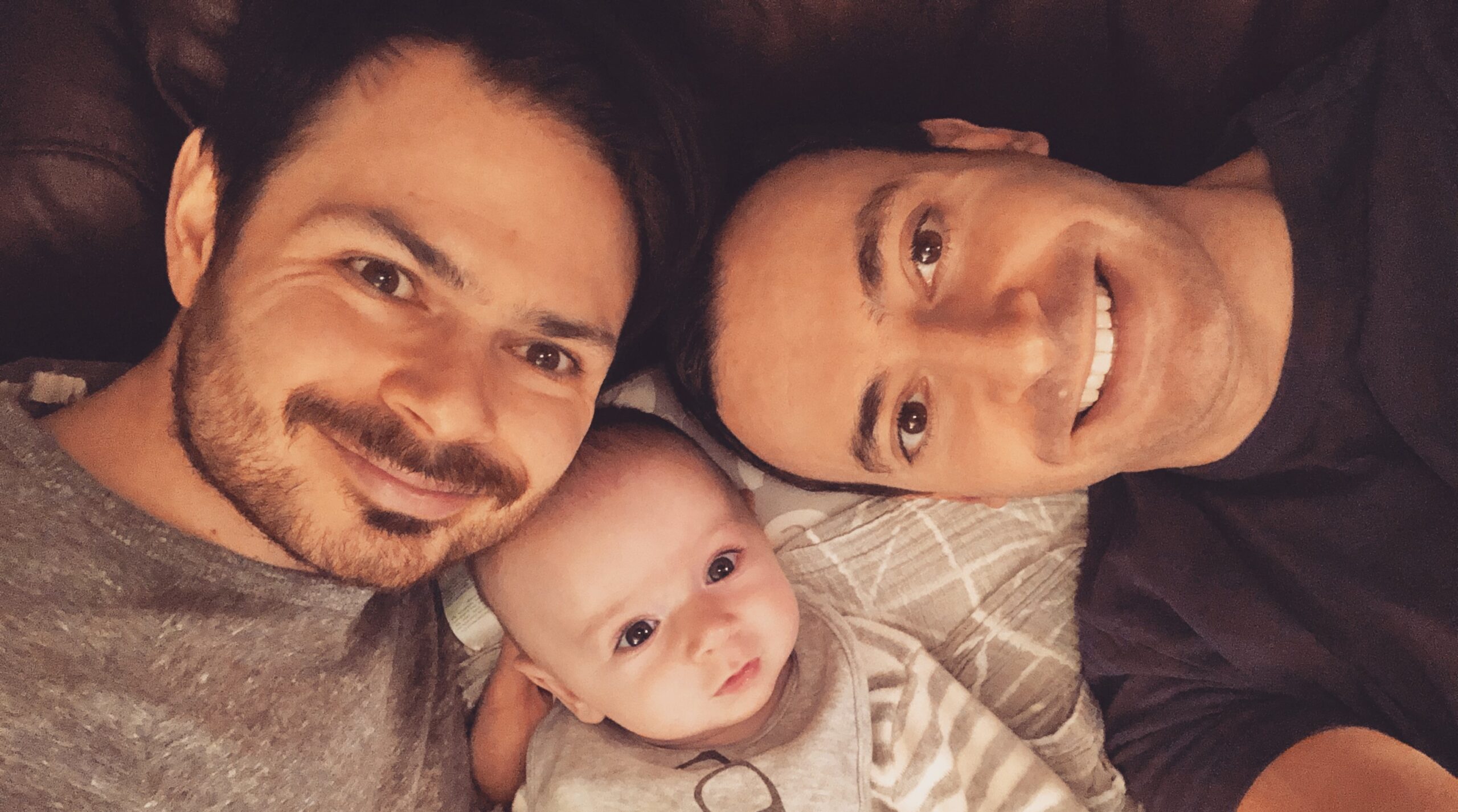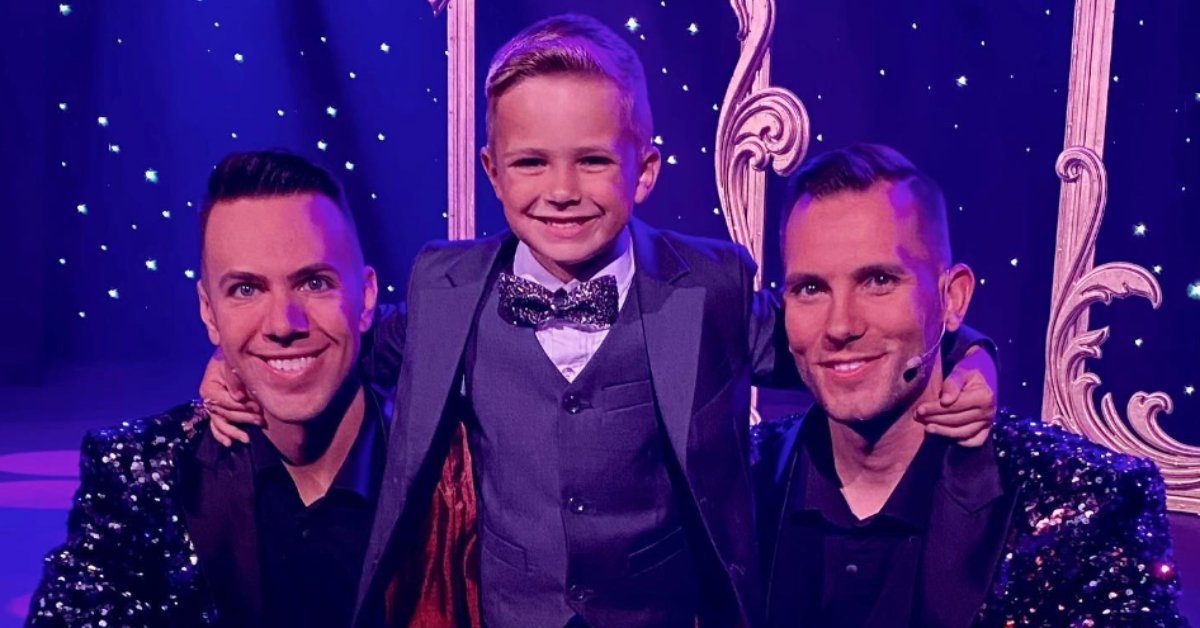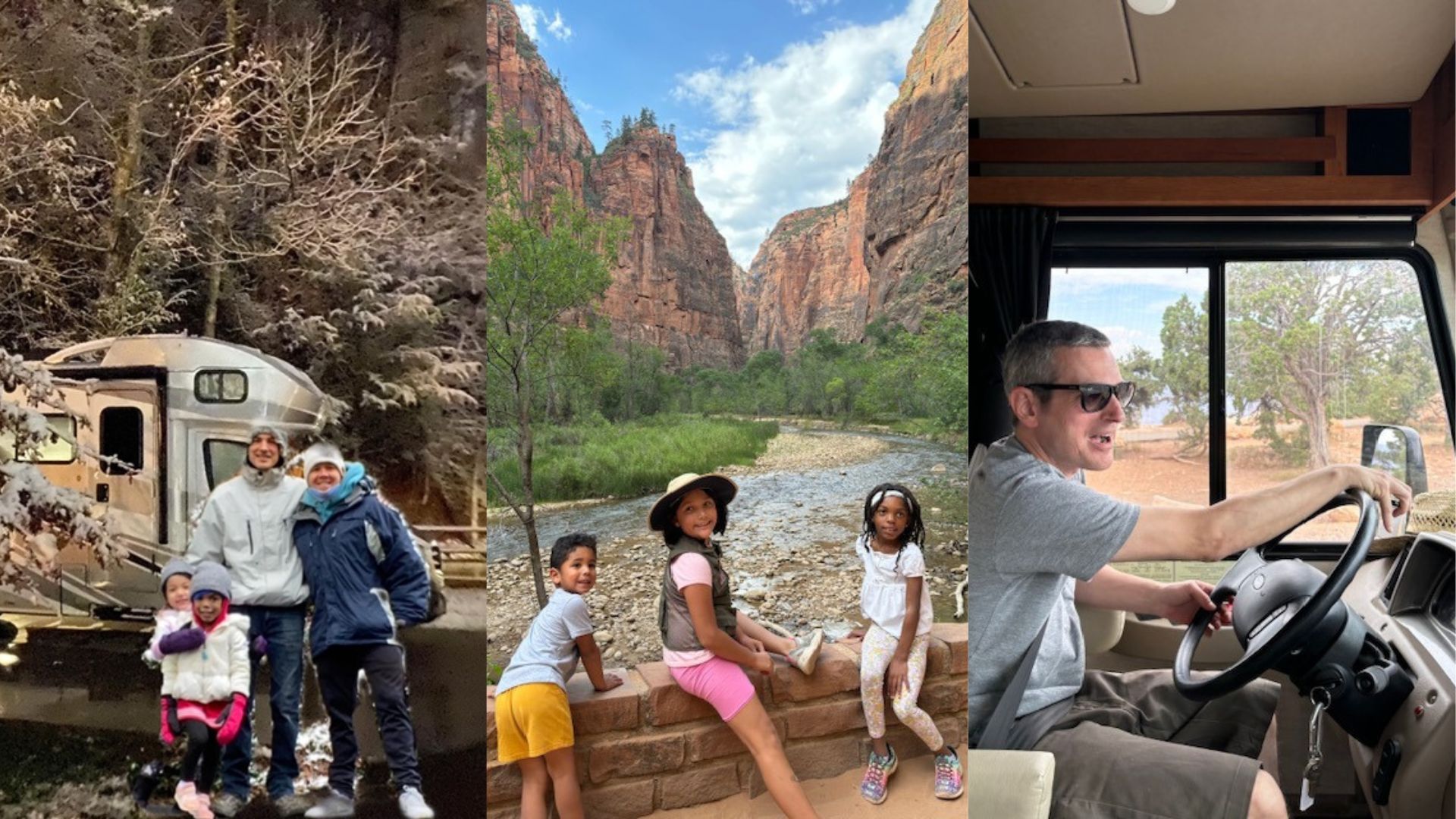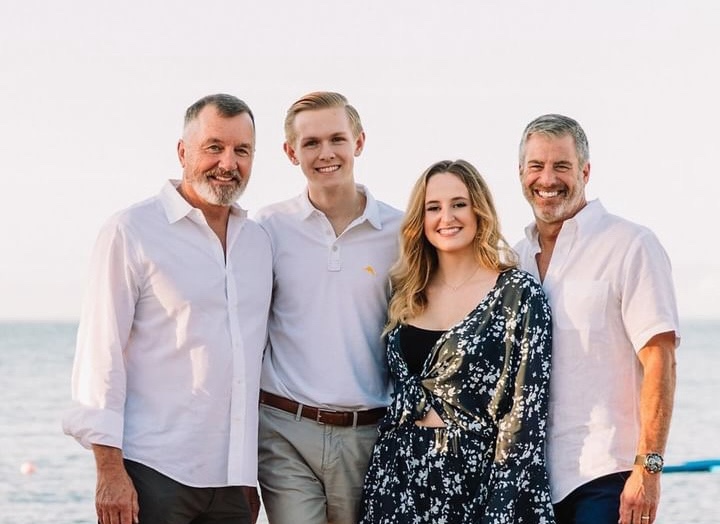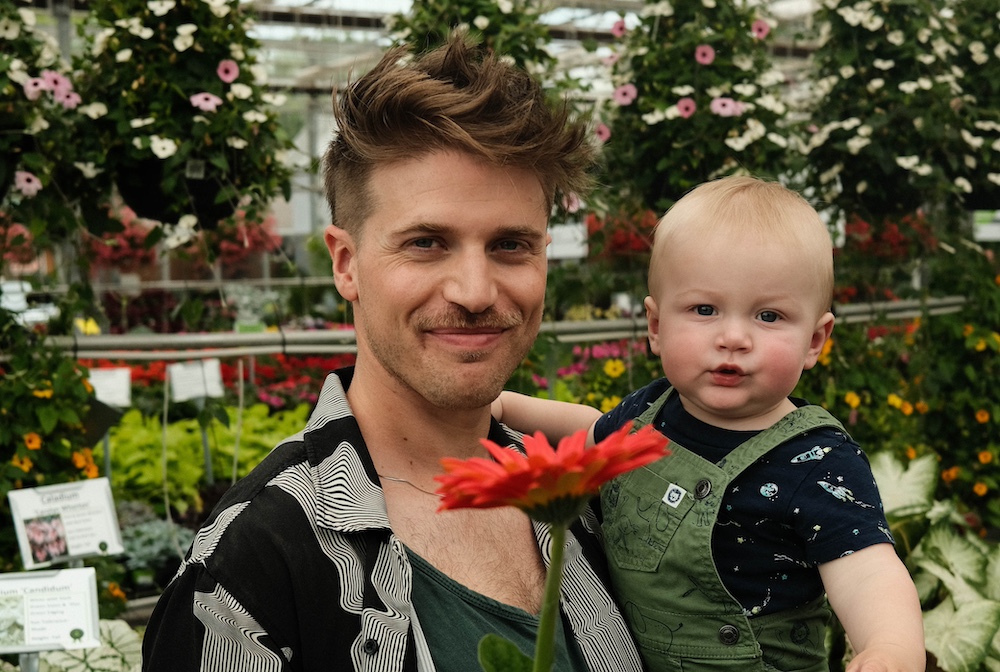Originally published April 2, 2021
Robbie likes to joke that he and his husband, Mackenzy, met eight years ago the old-fashioned way; actual, computer-based online dating — none of these newfangled apps the kids use these days. It was a simpler time then. “Before Tinder took off and OkCupid was in its prime,” Robbie said.
The couple first shared a few emails back and forth before agreeing to meet at Employees Only, a cocktail bar in the West Village. “Mackenzy was working night shifts at the time,” Robbie said. “So he asked to meet for dinner again the next night and our new relationship was off to the races.”
You’ll read plenty of stories on Gays With Kids featuring dads who talk about their desire to have children on the very first date. “We weren’t that couple,” Robbie said. “We are both the youngest siblings in our families, and both my sister and Mackenzy’s brothers all started building their families and having kids, and we loved spending time with our nieces and nephews.”
Eventually, however, the two decided they wanted to be more than the fun “guncle”. “About a year into our marriage, we knew starting our own family was something we both wanted and we began to research the surrogacy process,” Robbie said.
The couple attended a conference in New York which introduced queer men to the general idea of surrogacy and how it works.
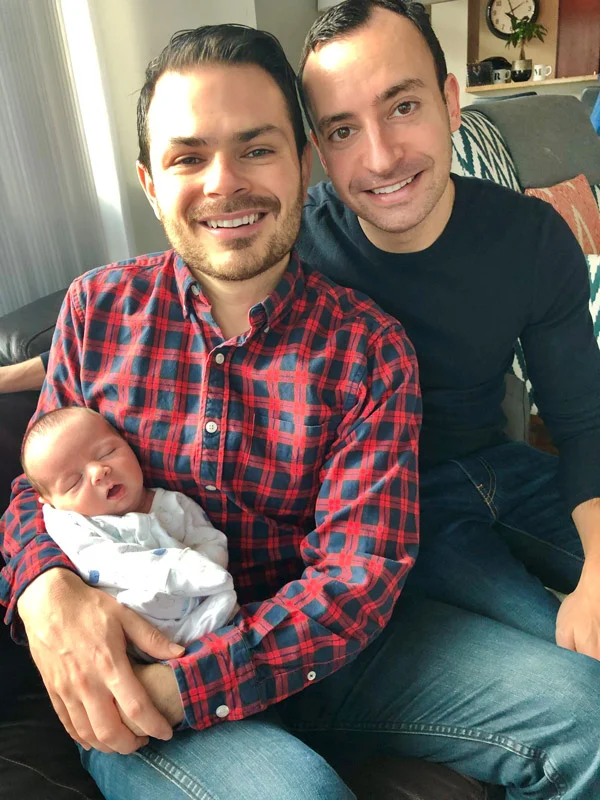
“It’s almost so much information that it can be overwhelming!” Robbie said. But, at the conference, the couple met a fertility center based in Connecticut. “They both were very easy to talk to and were great resources, not pushy at all,” said Robbie.
The couple began to work with Dr. Leondires on the fertility process first. “Since Dr. L. focuses heavily on gay couples starting families, and having gone through the process himself, he and his team were very knowledgeable and great with explaining everything to us,” Robbie said.
Once they picked their egg donor, the couple retrieved 36 eggs, and were able to create 12 mature and healthy embryos — but first, they needed to match with a surrogate. With Worldwide Surrogacy’s support, they found their ideal carrier four months later. “It was a great match!” Robbie said.
After all contracts were signed and everything approved, they set the date for their first embryo transfer — March 2020, the same month the novel coronavirus began to barrel itself through New York City and the surrounding areas.
“We became increasingly nervous whether our surrogate would even be able to fly into New York, but luckily everything worked out perfectly right before everything went into lockdown,” Robbie said.
Two weeks later — while Mackenzy, who works as a nurse manager at Mt. Sinai Hospital, was consumed with rising cases of Covid-19 — they got a text that offered a beautiful bright spot amid the chaos. “Our surrogate, Angela, surprised us with an early pregnancy test that indicated she was pregnant!” Robbie said.
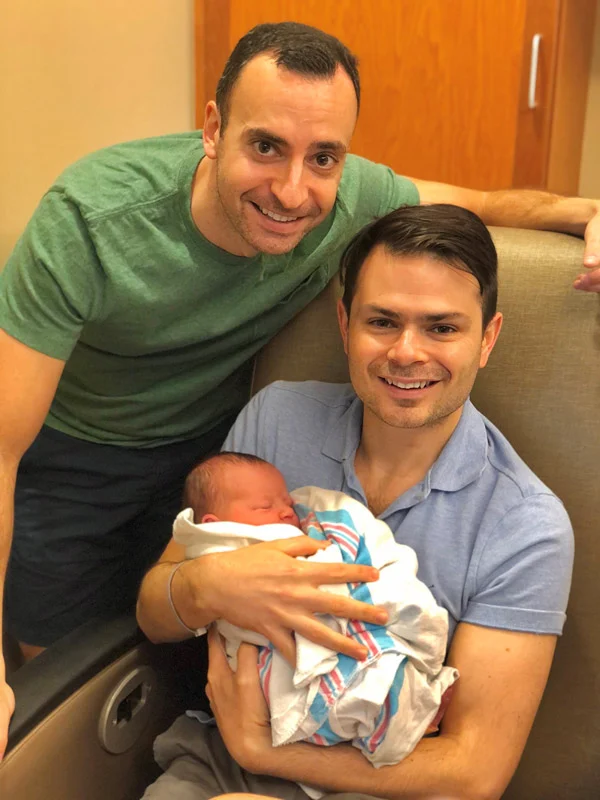

As the weeks and appointments went by, everything continued to move along smoothly — except for the couple’s rising excitement, and nerves, about the major life change ahead. “We couldn’t believe we were going to have a baby and become dads after months and years of dreaming about it,” Robbie said.
One major downside to a surrogate pregnancy during a pandemic, besides the obvious, is that the husbands were unable to see Angela, who lives in Mississippi, in person. “The pregnancy was not how we imagined,” said Robbie. “We were unable to get down there to see her before the birth due to the pandemic, but we still managed to FaceTime at many of the appointments and keep in touch.”
On one of those occasions, Angela and her husband surprised the dads-to-be with a small gender reveal party through FaceTime. The party was done “with true Mississippi flair,” Robbie said. “They put blue chalk in the back of their pickup truck and floored it down the street so the chalk flew out the back and revealed we were having a boy.”
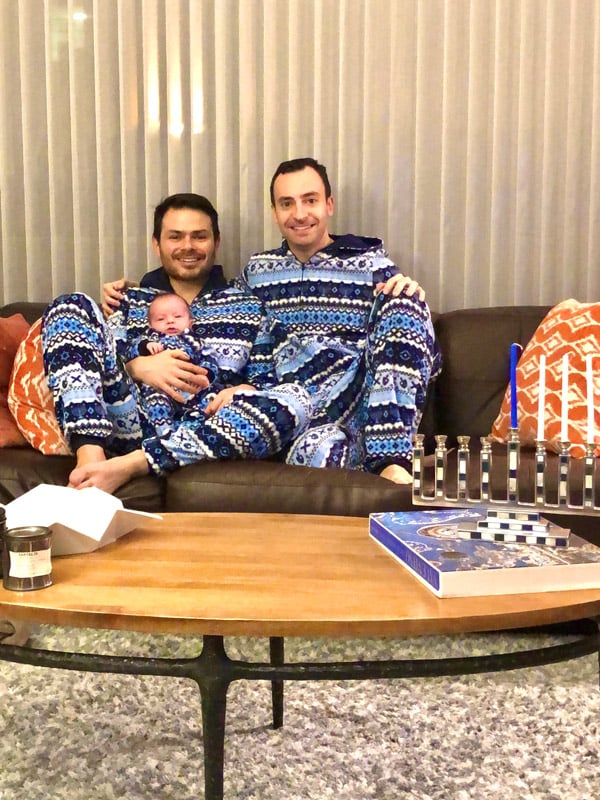

One part of the pregnancy they were determined not to experience virtually, however, was the delivery — which came a couple of weeks early. “Mackenzy and I along with Mackenzy’s parents all flew down to Mississippi to wait it out, and the timing worked out perfectly.” Baby Beckett joined the dads, making them a family of three, on Nov 12th.
When it came to juggling the emotional toll of the pandemic with the knowledge that they were going to welcome a baby into the world, the couple said they felt extremely lucky to be able to transfer an embryo, because, within days of the transfer, NY went into lockdown, elective surgeries were put on hold, and the entire Cardiothoracic ICU at Mount Sinai was transferred into a COVID-ICU to make beds available for those in need.
“During this time, I really didn’t have a lot of time to think,” Mackenzy said. “It was a scary time with so many unknowns. As the months went on, I was definitely a little fearful to bring a baby into this world but I also knew it was an opportunity. At a time when mental health was so important and so overlooked, counting down to Beckett’s arrival was something so joyful to look forward to that it helped provide a little escape from some of the hardest days.”
Robbie said one of the first moments he realized he was a father was when he first heard the baby’s heartbeat. “It cemented that this was real!” he said. “You can also say I felt like a father when we first left the hospital for the drive to the airport and had to figure out how to put the car seat in the car for the first time for this new little man in our lives!”
Robbie said that despite all the chaos of those early months of new fatherhood, he and Mackenzy have settled into family life quite nicely. “It’s just a change and a shift in how you used to do things,” he said. “Luckily we have a great support group of both friends who have been through it and family who were all able to ease many of our concerns.”
Robbie said he and Mackenzy aren’t ever treated any differently as a family — apart from curiosity from others as to how the surrogacy process works. For others interested in this path to fatherhood, Robbie notes that the first bump in the road, for many, is the price tag.
“It’s, unfortunately, a large financial challenge that I wish was easier and more affordable,” Robbie said, adding that intended parents also need to be aware of how complex and overwhelming the process can be. “However, I think if you can get past that, anyone considering surrogacy to start a family should try and pick the right agencies and support that will let them move at their pace to help them pursue their dream,” Robbie said. “If fatherhood is something you want to pursue — then do it, you won’t be disappointed!”
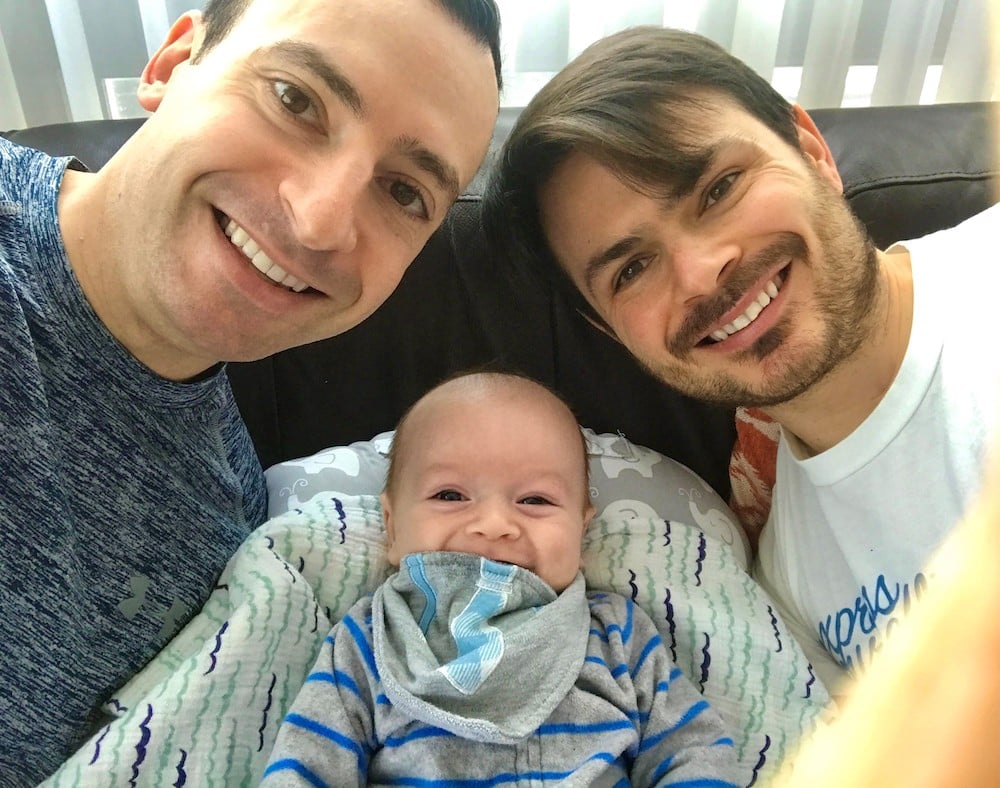

Mackenzy said fatherhood has already had a positive impact on the way he works. “Becoming a dad has transformed me into a more empathetic leader,” he said.
“I’m able to bring a personal touch to the unit – as each of our patients are a father, mother, brother, sister, aunt, or uncle to someone in their own family, and we need to treat them with the best care and attention we would want for our own personal family. I also have a greater understanding of the different dynamics of what other nurses on my unit are going through and the toll that this job can have an effect on their own personal lives, many of whom have their own families as well.”
If you are interested in learning more about starting your own family check out the GWK Academy.

